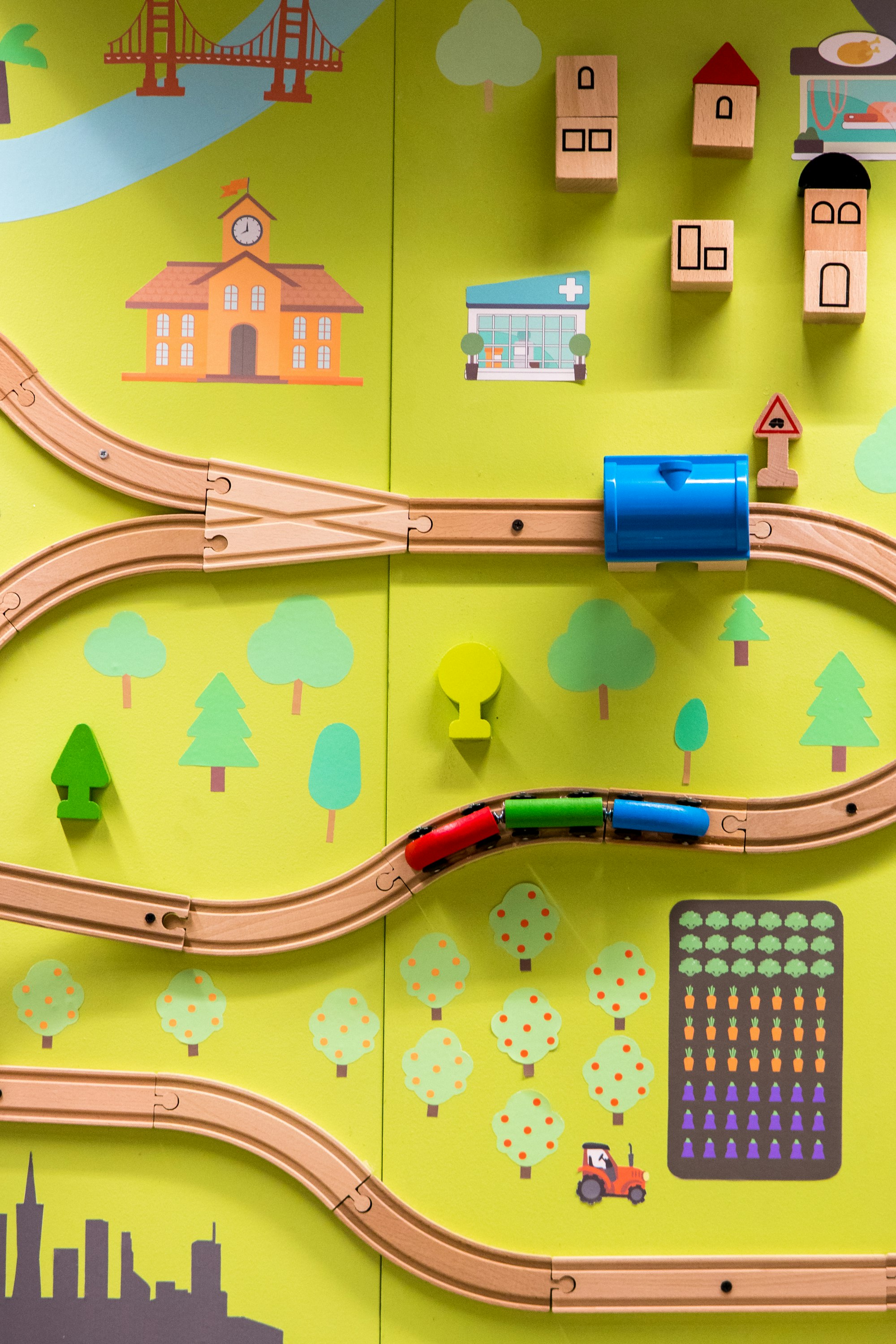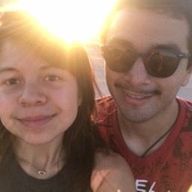Just recently, I listened to a podcast by Jay Shetty featuring Oprah Winfrey and Dr. Bruce Perry called “Healing From Childhood Trauma and Becoming Self-Aware, Confident Adults,” covering the topics discussed in Oprah’s and Dr. Perry’s new book, “What Happened to You?” The podcast episode covers the topics in the book, specifically how childhood trauma, or what happened to us as infants and children, plays a defining role in our present lives.
Essentially, the way we were loved and how consistent that love was affects the way our nervous system develops and adapts to our environment. Trauma does not have to be a big event (“big T”) to harm one’s well-being and health. Small but consistent and continuous acts of neglect, abandonment, deprivation and unappreciation (“small t”) can be just as influential.
Although I had already been aware of how small tokens of inconsistency, neglect, and abuse were a source of childhood trauma, this podcast episode became very impactful for me because of how Oprah Winfrey shared her experience about creating a school for young girls in Africa.
Although she had put lots of effort into making the school very beautiful and welcoming, the girls displayed very odd behaviours considering the sense of safety the school provided. They would sometimes hide, have random cry spells, and be very emotional.
Oprah called Dr. Perry a few days after opening up the school to ask what she may be doing wrong and he explained to her that the girls were most likely suffering from post-traumatic stress disorder (PTSD). Because they were now in a place that was quiet and orderly, the minds and bodies of the young girls did not have a schema to follow when in an environment that is consistent and safe. Hence the irrational display of behaviours they experienced.
As I listened to the podcast, I tried to remember any example from my past that resembled trauma. Specifically, anything that could have been traumatic for an infant or young child that is barely learning about the world and doesn’t have the rationality or coping skills to handle stressful moments.
According to Dr. Perry, what happens to us from the moment we’re born until we’re six years of age, defines how we later handle adverse events and our level of resiliency in our adult lives.
In this mental venture, the first most prominent experience of trauma that I could recall was sexual abuse I experienced starting at the age of four or five. But as I recalled more memories and facts about my past that my mom had shared with me over the years, I realized that I had a timeline of events and experiences that perhaps had made me feel unlovable and neglected.

My trauma timeline
When I was first born, my skin was ice-cold. My internal temperature was below what it needed to be. The nurses placed me in a heating incubator right away instead of taking me to my mom to be held. My mom said that I was in the incubator for about three to four hours crying nonstop.
My parents wanted to take me out and hold me, but the nurses told them that if I was taken out before my body’s internal temperature increased to a normal degree, then I could suffer dire consequences or even pass away. My mom told me that even after I was taken out that I couldn’t stop crying. She felt that I was anxious about not being held those first few critical hours.
At three months of age, my mom went back to work after being on maternity leave for close to twelve weeks. She said that on the evening when she came back, I refused to look at her and started crying when she tried to carry me. I even denied drinking milk from her. Apparently, it took me about a week to start warming up to her again, but it was evident that I was hurt from her leaving.
At the time, my godmother would take care of me while my parents worked and my brother was at school. My mom said that I was very attached to my godmother and often looked for her whenever I wanted to be comforted. When I was about two years old, my godmother decided to go back to Mexico for a few weeks to fix some paperwork regarding my grandparent’s property.
When she tried coming back through the border, she was caught by immigration patrol and given a warning that if she tried passing illegally again that she would be thrown into prison. I didn’t see my godmother for a few years after that until we went to visit her in Mexico. But after she left, my mom said that I would often cry, wouldn’t eat, and had some trouble sleeping. She thinks that I was depressed from my godmother’s leave.
After my godmother had left, I started being taken care of by my niece’s grandmother who lived right next door. Because I was the youngest child, she took care of compared to all of her grandchildren, I was often picked on and the last one in line to be fed, bathed, or allowed to use the restroom.
I would often urinate on myself because of how long I would have to wait for my turn and would be given a cold shower whenever I did. Sometimes the woman would hit me if I talked back to her grandchildren or played too roughly. My parents didn’t know that any of this went on but eventually decided to take me to a different caregiver when they found out that the woman would make me sleep on the cold floor without a blanket or a sheet.
My new caretaker was an elderly lady that I learned to call 'Abuela' ('grandma'). She had a few medical problems and would take many medications throughout the day. On her worst days, her daughter or granddaughter would look after me. Abuela’s nieces and nephews often spent their time at her house after school or would be around throughout the summer. Her eldest nephew became very fond of me; he would often offer to play or spend time with me.
Eventually, he started to kiss me in hiding or touch me when no one was looking. I don’t remember exactly how old I was when it started but by the age of five, the abuse worsened until one day I told Abuela what was going on. He was there when I told her and she threw both of us to the floor.
She had a cord or a belt of some sort and started whipping him and made me watch. Then she turned to me and told me to not tell my parents because they would do the same to me. I ran to her room and stayed there alone for a few hours crying. But despite him being hit, he didn’t stop until his family eventually moved across the country when I was about six years old.
Simultaneously during this time, Abuela’s nieces often would bully me by calling me names, picking at my skin, or pulling my long hair. They would steal my toys and take away my books. They often would compare me to their youngest cousin who was my age, saying that she was prettier and smarter than I.
I never spoke up about the bullying to Abuela because since they were older than I was, I had the fear that I would be seen as a “liar” or a “crybaby.”
Somewhere between those years of abuse and bullying, my brother in high school at the time was convicted of a crime. He was taken away for a few weeks while my parents searched for a lawyer to take him out. He would sometimes mail me drawings or call our house number in the evening when my parents and I were home to tell me that he missed me. My mom said that around this time, I stopped being my affectionate self and became very sensitive. She said that I would often cry for my brother and ask for him to come home almost every day.
My earliest memory is of my grandpa. I was close to three years old when we went to visit my dad’s parents in Mexico. My grandpa was suffering from Alzheimer’s and was already bedridden. The memory consists of him laying in bed with my grandma sitting at his bedside, who was slowly feeding him a bowl of plain oatmeal. The room’s curtains were closed and the only light entering was from the doorway. The spoon she used was one of the small, plastic-coloured ones mothers use for infants. As she brought the oatmeal close to his lips, he would slightly move his head forward to mouth the oatmeal and ate very slowly.
After seeing him eat a few spoonfuls, he rested his head back on his pillow. My aunt then shooed me and my cousin away because they were going to change my grandpa’s diaper.
I was about five or six years old when I remember my aunt calling our house number telling my dad to go to Mexico as soon as possible. He called off a week from work and left later that night. Shortly after my dad arrived at his parent’s house, he called us letting us know that my grandpa had passed away. My mom was on the phone with him and I saw her face crumble into a painful expression as she covered her mouth with her hand the moment she heard the news. When my dad came back, he didn’t speak to us much for close to a month.

Understanding myself
And so, I had created this timeline in my head. Thinking of main events that I believed that as a child could have made me feel anxious, scared, lonely, depressed, or unsafe. I look back and feel this pain for my younger self who although had loving people in her life, was often stripped away from them one way or another. These instances, I believe, perhaps made me feel that I was constantly being abandoned. Although all of the memories mentioned are from my very early years, I do have a few memories from these instances that can be replayed like a clear movie in my mind’s eye.
When I remember back to what it felt like being in these moments, I realize how often during these times my stomach was uneasy, my jaw clenched, and my shoulders tight. I often would get headaches or lose my appetite. I would have multiple sleepless nights in a row or would often wake up from horrid nightmares. Because my dad didn’t like to see me emotional, he taught me that “strong little ladies” don’t cry.
And so, aside from the intense fear and anxiety I often felt, I was also taught to not speak up or release my emotions. Because everyone liked a quiet, obedient little lady.
I see myself now. I understand why I was diagnosed with complex post-traumatic stress disorder (cPTSD). I realize how the constant anxiety I feel some days is an adaptive response that I had to develop to protect myself. I feel less judgment of the times I became overwhelmingly emotional and didn’t know how to handle myself.
I let go of the expectation that I shouldn’t be having panic attacks and that I should know how to name my needs and emotions. Because given that I was not introduced to a world of complete order and stability early in life, the mental and emotional state where I want to be will need to be learned and practiced until it becomes second nature. And I see that I can’t blame myself entirely for my mental health problems.
Sure, if I’m self-aware of an issue and don’t take action to address it, then I see how in a way it’s my fault. But if I have bad habits and coping mechanisms that aren’t in my complete awareness, then having self-compassion for these practices until I’m capable of addressing those issues is the best I can do.
I invite you to take a few steps back and see what happened to you as an infant or child. Did you lose someone? Were you in a household where you weren’t sure when your next meal would be? Where you were constantly told that you would mount to nothing or stripped from your agency to speak up for yourself?
Our childhood experiences are the foundation of our mental and emotional health. Often our hurt inner child simply wants to be seen, heard, validated and loved. Just like any child would.















